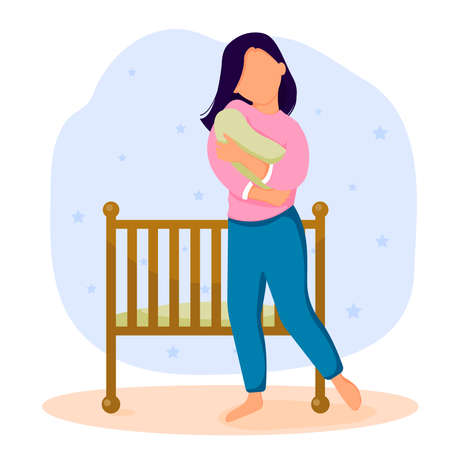Understanding Sleep Challenges in UK Families
Sleep issues are a common concern for families across the UK, affecting both parents and children at various stages of life. Busy lifestyles, school pressures, shift work, and even the unpredictable British weather can all contribute to disrupted sleep patterns. Many parents find themselves struggling with their own rest while also navigating bedtime routines, night-time waking, or sleep anxieties in their children. For some, these challenges are temporary and resolve with time or minor changes to daily habits. However, when sleep difficulties persist—such as frequent night wakings, trouble falling asleep, or daytime fatigue impacting school or work—it may be a sign that additional support is needed. Recognising when these issues move beyond the everyday is an important first step in accessing the right help and resources available through the NHS and various UK-based charities.
Accessing NHS Support for Sleep Issues
A Step-by-Step Guide to Seeking Help
If your child is struggling with sleep, the NHS provides a clear pathway for parents in the UK to get professional support. Understanding how to navigate this process can help you feel more confident and supported throughout your journey. Below, we outline a practical step-by-step guide to accessing NHS services for sleep issues.
Step 1: Speak to Your GP
Your General Practitioner (GP) is often your first point of contact. Book an appointment, either in person or via phone/online consultation. Be prepared to discuss your child’s sleep habits, any changes in their behaviour, and attempts you’ve made to improve their sleep.
Step 2: Consult Your Health Visitor
For babies and young children, Health Visitors are an invaluable resource. They offer tailored advice on infant sleep routines and may provide home visits or clinic appointments. Health Visitors can also refer you to specialised services if needed.
Step 3: Use NHS 111 for Urgent Concerns
If you feel worried about your child’s wellbeing due to sleep deprivation or related health concerns outside of GP hours, NHS 111 offers free, round-the-clock advice. Trained advisors will guide you on whether immediate medical attention is needed or suggest next steps.
NHS Sleep Support Pathways Table
| Contact Point | How to Access | Support Offered | What to Expect |
|---|---|---|---|
| GP | Book appointment via surgery or online system | Initial assessment; advice; possible referral | Discussion about sleep patterns and impact on wellbeing; signposting to resources or specialists |
| Health Visitor | Contact via local Child Health Clinic or direct phone line | Bespoke sleep advice; home visits; workshops | Practical tips for bedtime routines; ongoing support if needed |
| NHS 111 | Call 111 (free from any phone) | Immediate advice; triage for urgent care needs | Guidance on managing acute issues; information on next steps or emergency action if required |
What Support is Available?
The NHS offers a range of support options depending on your childs age and specific challenges. This may include written resources, group workshops, one-to-one consultations with specialists (such as paediatricians or psychologists), and community-based support groups. The process is designed to be family-centred and sensitive to individual needs.
What Should Parents Expect?
You can expect a compassionate approach that values parental insight while using evidence-based strategies. While waiting times for specialist referrals may vary by region, initial advice and reassurance are usually available promptly through GPs and Health Visitors. Remember, seeking help is encouraged and there is no judgement—NHS professionals are there to support both you and your child’s healthy development.

3. Charitable Organisations Offering Sleep Support
In addition to NHS services, there are several well-established charitable organisations across the UK that provide valuable support for parents and families struggling with sleep issues. These charities understand the unique challenges faced by families, particularly those with young children or babies, and offer a range of resources tailored to different needs.
The Sleep Charity
The Sleep Charity is one of the leading organisations dedicated to promoting healthy sleep. They offer practical advice, evidence-based information, and a helpline for parents who need guidance on managing sleep difficulties in both children and adults. Their website features downloadable resources, sleep plans, and tips designed specifically for families experiencing disrupted nights. The charity also runs workshops and training sessions for parents and carers throughout the UK.
Family Lives
Family Lives is another trusted charity supporting parents with a wide variety of challenges, including sleep concerns. Their confidential helpline provides emotional support as well as practical strategies to help improve your child’s sleep routine. Family Lives also offers online forums, live chat options, and comprehensive articles addressing common sleep problems from a psychological and developmental perspective.
Other Helpful Charities
Besides these two main organisations, other charities such as Action for Children and Contact (for families with disabled children) provide specialist sleep advice tailored to specific family circumstances. Many local branches offer one-to-one guidance or group sessions where you can share experiences and learn from other parents in your community.
Accessing Resources
Most of these charities make their resources freely available online or via their helplines, ensuring that all families—regardless of background or location within the UK—can access trustworthy advice and compassionate support. Whether you’re seeking reassurance, information on establishing bedtime routines, or dealing with persistent sleep disturbances, these charitable organisations are there to help you navigate the ups and downs of family life at night.
4. Navigating Online and Community Resources
Finding trustworthy support for sleep issues can feel overwhelming, especially with so much information online. In the UK, parents benefit from a range of reliable digital platforms, local workshops, and community groups tailored to their unique needs. Below, we explore the best ways to access these resources and make them work for your family.
Where to Find Reliable Information
The NHS website (nhs.uk) remains the gold standard for evidence-based advice on child and parent sleep health. Many NHS Trusts also offer downloadable leaflets and video guidance specifically designed for new parents. For further reassurance, charities like The Sleep Charity (thesleepcharity.org.uk) provide clear, practical tips based on UK clinical guidelines.
Workshops and Local Support
Across the UK, many community centres and children’s centres hold in-person sleep workshops. These are often free or subsidised by local councils or charities. Health visitors and GPs can signpost you to local events, where you’ll meet other parents experiencing similar challenges.
| Resource Type | Where to Find It | What’s Offered |
|---|---|---|
| NHS Sleep Clinics | Referral via GP or Health Visitor | Assessment & personalised support |
| Charity-Run Workshops | The Sleep Charity, NCT branches | Group sessions & Q&A with experts |
| Online Forums | Mumsnet, Netmums, NHS forums | Peer advice & shared experiences |
| Digital Tools & Apps | NHS-recommended app stores | Sleep tracking & guided relaxation |
| Community Groups | Children’s Centres, Family Hubs | Peer support & signposting to services |
Peer Support Networks
Connecting with other parents can be invaluable. Platforms such as Mumsnet and Netmums host active UK-based forums where you can share stories and strategies. Many local Facebook groups also offer safe spaces for advice and emotional support—just look for those moderated by health professionals or trusted charities.
Using Digital Tools Safely
The NHS endorses several apps for tracking sleep patterns and offering relaxation techniques; these can be found on the NHS Apps Library. Always ensure that any tool you use is NHS-approved or recommended by a reputable charity to guarantee your data privacy and accuracy of information.
Your Next Steps: Combining Resources for Holistic Support
No single solution fits every family. By blending digital tools, face-to-face workshops, peer networks, and professional guidance, you create a robust support system. Don’t hesitate to ask your health visitor or GP about what’s available locally—they’re there to help you find the most suitable path for your family’s sleep wellbeing.
5. Advocating for Your Family’s Needs
Navigating sleep challenges as a parent in the UK can feel overwhelming, but advocating for your family’s needs is an essential step towards positive change. Working effectively with NHS professionals and charitable organisations can make a real difference, especially when you approach these conversations prepared and informed.
Practical Tips for Working with Professionals
When meeting with GPs, health visitors, or sleep specialists, it’s helpful to come with clear information about your child’s sleep patterns and the concerns you have. Be honest about how sleep issues are affecting your child and family life. Don’t hesitate to ask questions if advice is unclear—remember, you are your child’s best advocate. If you feel your concerns are not being addressed, it’s perfectly acceptable to seek a second opinion or request a referral to a specialist sleep service.
Keeping a Sleep Diary
A sleep diary is a powerful tool that can support your discussions with healthcare providers. For one to two weeks, record when your child goes to bed, wakes up, how often they wake during the night, nap times, and any notable events (such as nightmares or resistance at bedtime). Patterns may emerge that help professionals tailor their advice more specifically to your situation. Many NHS trusts offer printable templates, or you can use apps recommended by your GP.
Accessing Age-Appropriate Support Services
Support should always be tailored to your child’s age and specific sleep challenges. For babies and toddlers, health visitors can provide guidance on safe sleep routines and settling techniques. School-aged children may benefit from referrals to paediatric sleep clinics or community-based services. Teenagers often face unique sleep pressures; charities such as The Sleep Charity UK offer online resources and helplines specifically designed for older children and their parents. Always ask professionals about local resources—many communities in England, Scotland, Wales, and Northern Ireland have dedicated parenting support groups or workshops focusing on sleep difficulties.
Advocacy takes patience and persistence. By documenting your child’s sleep habits, communicating openly with professionals, and seeking out age-appropriate support services, you empower yourself to make well-informed decisions for your family’s wellbeing. Remember, both the NHS and charitable organisations are there to help—don’t hesitate to reach out until you find the guidance that fits your unique circumstances.

